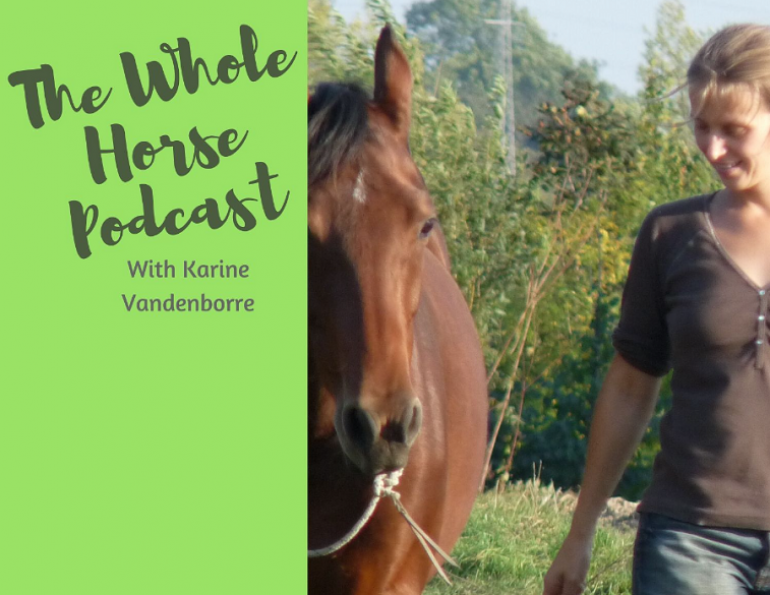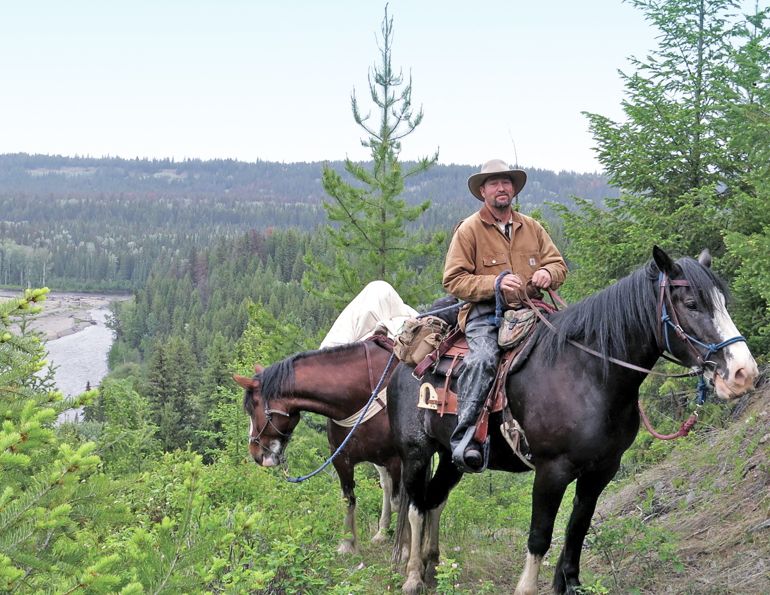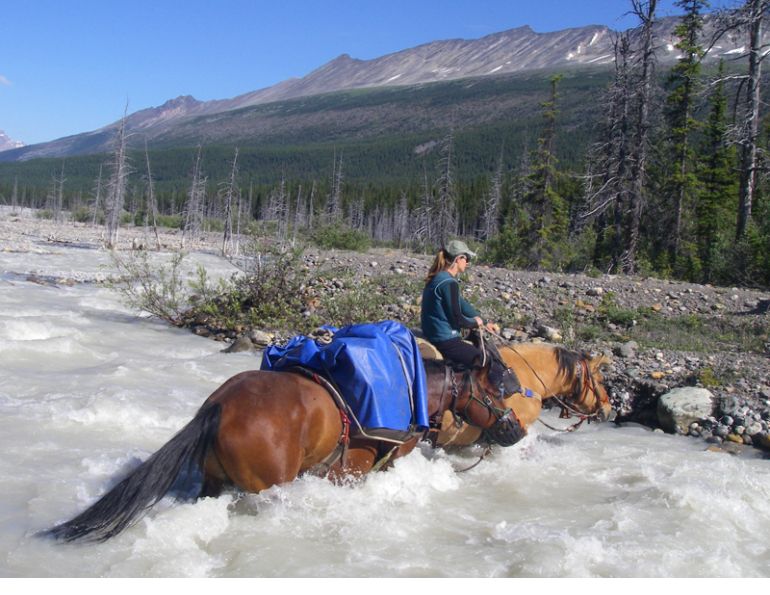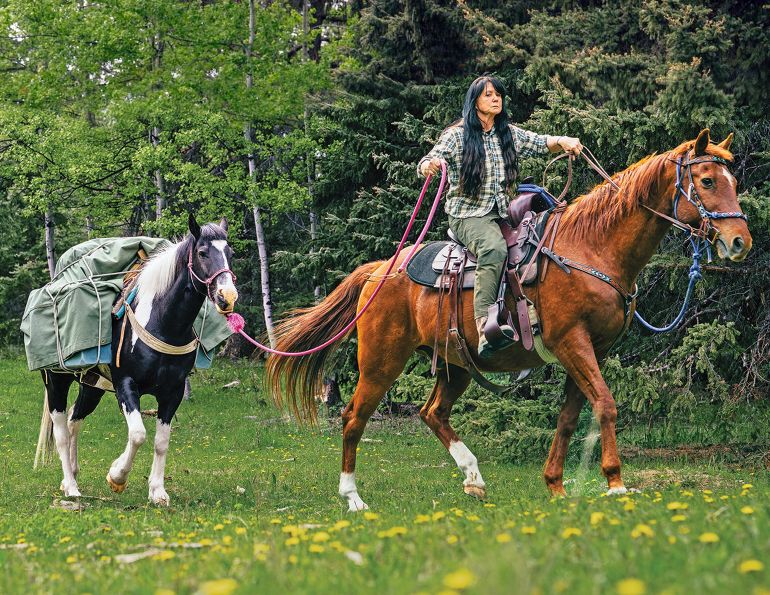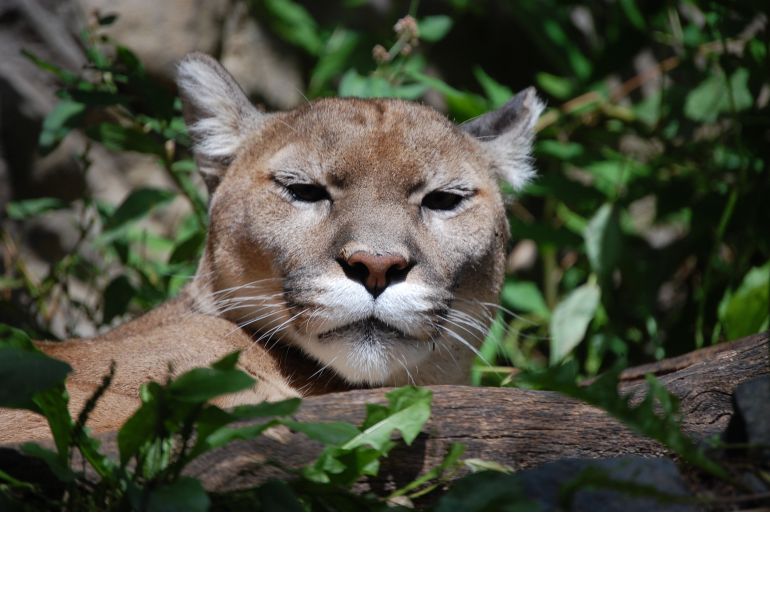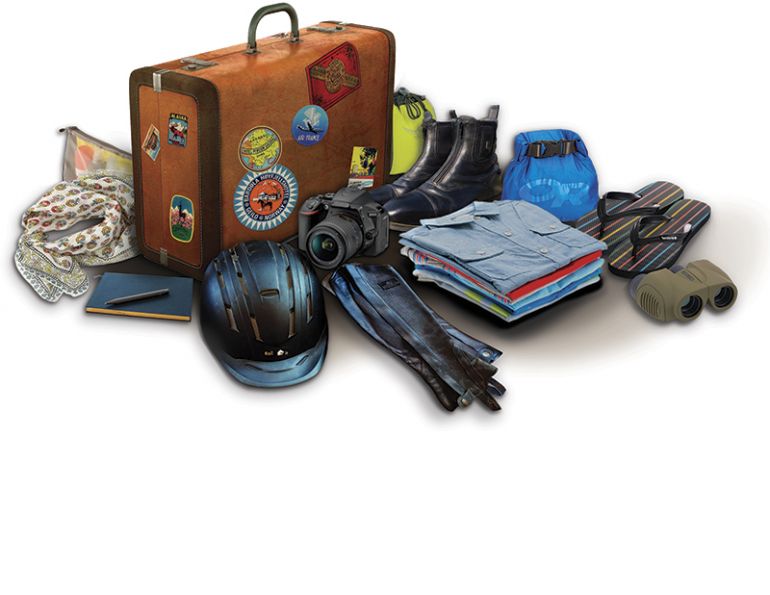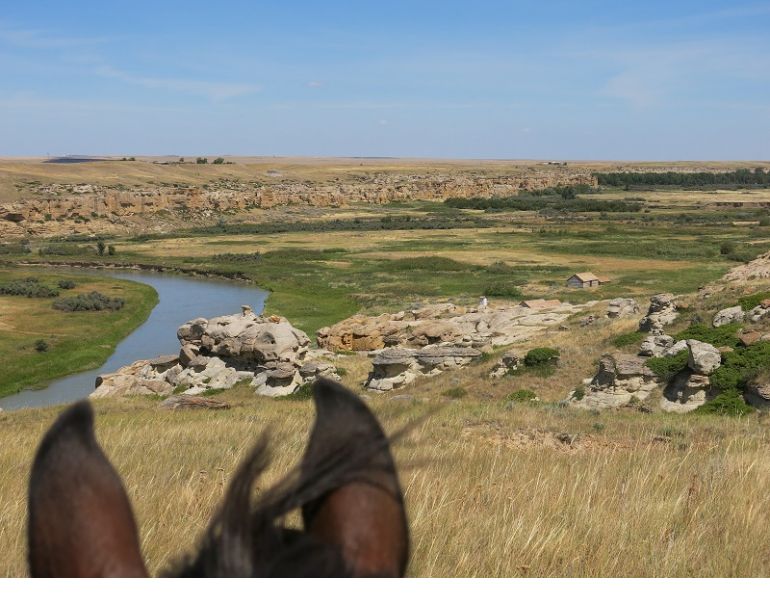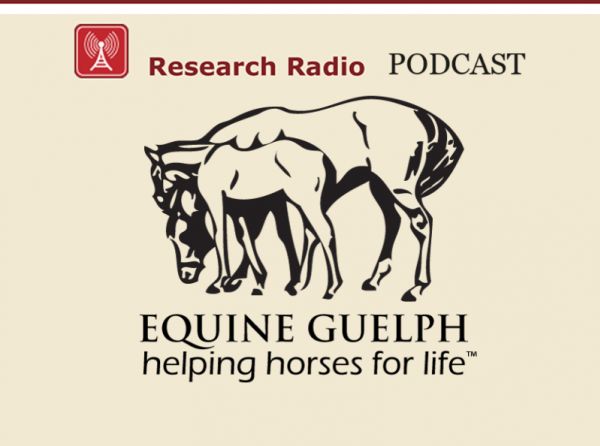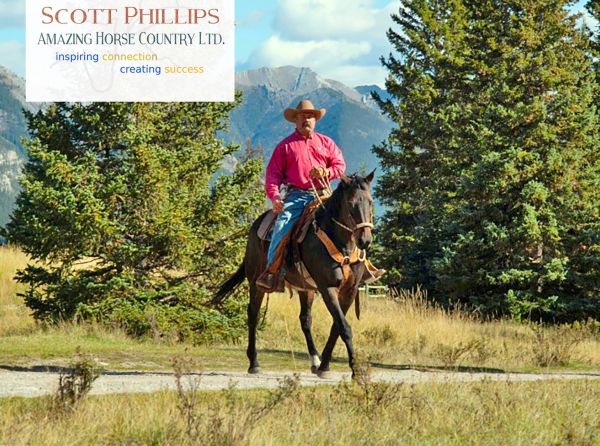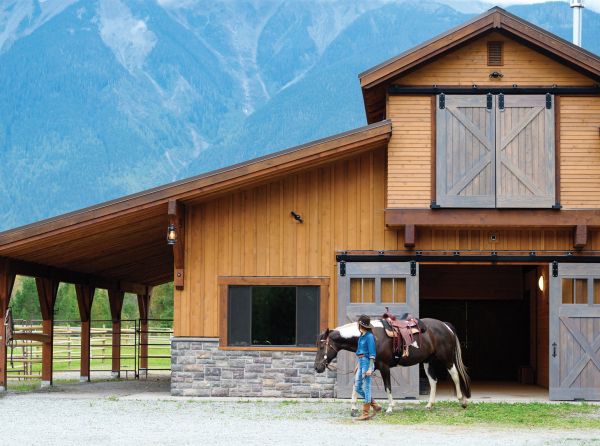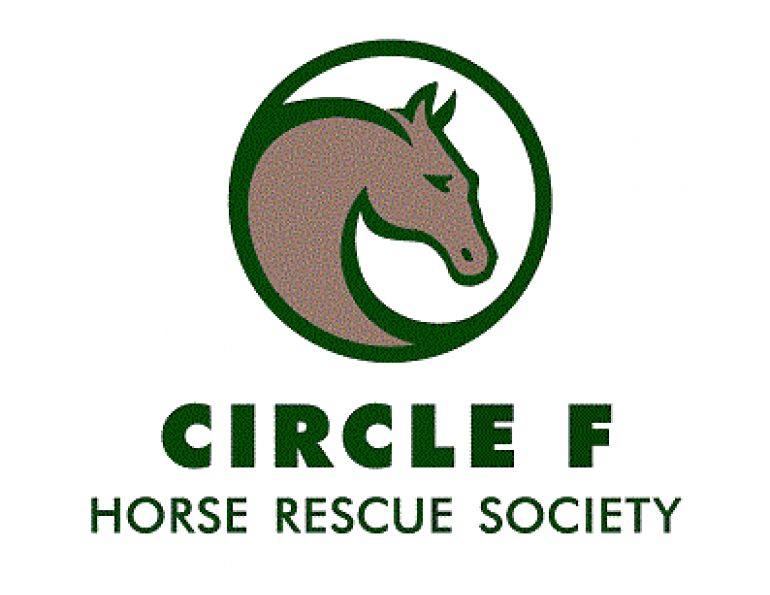The Draw of the North
By Shawn Hamilton
Out the plane window the sun casts a golden glow on the mountains below as the clouds of pink and purple fade to black. My dream of experiencing the wilderness of Canada’s Yukon on horseback is finally coming true. Landing in Whitehorse, capital of the Yukon since 1953, I drag my bags across the street to the hotel to settle in for the night.
Entering the hotel’s bustling restaurant in the morning my presence doubles the number of females from one (the waitress) to two. The bright morning sun shines through the picture windows as truckers and miners bulk up for the day. Whitehorse, a city of 28,000 people, thrives on mining, tourism, transportation, and government services.
Mandy, owner of Yukon Horsepacking Adventures, has sent her partner Armin to get me. After a quick tour of the city, named after the Whitehorse Rapids which are said to resemble the mane of a white horse, we head northwest to the ranch which lies in the Fox Lake/Lake Laberge area.
Related: Exploring the Historic Telegraph Trail
Nineteen-year-old Katie, a horse trainer native to Whitehorse, is first to greet me. Sylvie, a mounted police officer in France who is here on a working vacation, pauses briefly from tacking up a horse to introduce herself with a strong French accent. Henning and Irina from Germany, visiting Canada for the first time, emerge from a small sleeping cabin. The regular season has ended and the main wranglers are gone, but with such a small group Mandy has accommodated us with a short ride led by Katie and Sylvie to give us a feel for the area.

Mandy's horses are well trained and plough fearlessly through the deep water crossings. Photo: Clix Photography
Sporting a baby carrier with child, Mandy shows me around the property including the office cabin, shower, and sauna as well as a large log lunch cabin equipped with fireplace, living area, kitchen, and enough built-in log tables to seat a small army. Then Mandy leads me to my mount Lisa, a Percheron cross mare, and tells me, “She is young, but if you ride her with confidence she should be fine.”
My sleeping bag and a week’s worth of gear, compressed into two stuff sacks, sit on the tarp among other items for the pack horses. Saddle bags are loaded up, jackets are tied on, and we mount up, heading into the woods on a trail bordered by red fireweed carpeted with yellow leaves. The dogs – Buzz, a beautiful Blue Heeler, and Buddy, a Tibetan Mastiff – follow along. Moss hangs from the trees, backlit by the sun. “The natives call the white moss, ‘old man’s beard,’ and the black, ‘witches hair’,” Katie tells us.
My legs hang over Lisa’s neck to keep them dry at the first water crossing as she ploughs through the small river with no hesitation. The trail becomes steep and wet but Lisa never misses a beat. After lunch in a valley beside a large swamp, perfect moose country, the steep terrain forces us to grab our horses’ manes for balance. With English being Sylvie’s second language she mistakenly calls out, “Everyone hold the horse’s tail.” We all chuckle at the thought of reaching for the tail of the horse in front of us.
Related: The Lone Rider - Trail Riding Alone
Arriving at base camp with enough light to set up, we unload the cache, a storage area made out of long spruce logs high in the trees, accessible only by ladder. Everything from tents to kitchen utensils is stored up and away from bears in the cache, or in bear proof bins tied to trees below.

The cache, made out of long spruce logs high up in the trees and accessible only by ladder, is used to store tents, supplies, and food out of reach of bears. Photo: Clix Photography
At a stream near camp I help Katie picket the horses by attaching ropes to trees low to the ground which clip onto a fluorescent orange band fastened to the horse’s front ankle. Picketing is introduced to the horses at a very young age in a round pen with a rope from a middle post just long enough to reach the outer walls but not enough room to get hurt. While half of the horses graze the others will be grained in camp, then they’ll be switched around later. Chip, the dominant horse of the pack, is hobbled and wears a cowbell around his neck in case he wanders.
The camp is surrounded by an abundance of low bush cranberries, pumpkin berries, or bastard toadflax, which are not good to eat, and bear berries, used by the natives to make ice cream. The recurring theme of bears makes me relieved to be sleeping in the same tent as Katie. Licensed to carry a firearm from a very young age, Katie grew up on a trapline in the north and has had numerous encounters with grizzlies.
We stuff ourselves with a dill chicken dinner cooked over the fire as the sun descends behind the snow-peaked mountains. Sitting by the fire, Katie listens for the cowbell and Buddy watches the outskirts of camp for intruders.
The next morning, Lisa stands quietly while I load the saddle bags in the crisp morning air. The rough trail of scrub brush and swampy footing opens up into a valley of long grass swaying in the wind, and this is where we graze the horses. Later on the trail, Lisa begins to stomp her back feet. Katie shouts, “Bees! Get out of there quick.” Lisa is happy to respond and we escape with only a few stings on her hind leg. I am shocked that she did not buck.
Related: Diamonds are Forever: Hitching a Pack Horse
After cantering through grassy valleys we head uphill to Skip Camp, named after a gentleman in poor health whose dream of moose hunting in the mountains of the Yukon by horseback was fulfilled at this site. A hawk watches us from above as we laze and lunch in the sun.
The pack horses at camp whinny, letting us know we are close. Katie takes the horses down to the river to graze. I untack and brush Lisa while Henning chops wood for the fire. The cowbell rings through camp as Chip hops through looking for grain. Sitting by the fire after dinner the wind whistles through the trees.

Katie and Sylvie prepare dinner on the wood stove inside the tent at base camp. Photo: Clix Photography
Just after sunrise the next day, we hit the trails to get to high camp at Grizzly Mountain and back in daylight. Katie pulls out her binoculars and points out a herd of Dall sheep high up on the mountain. “That is where we are heading,” she exclaims. Stopping at a small lookout, we turn back to see the ranch below. The reds, yellows, and greens are complimented by the blue sky. Berry bushes, sheep, and gradual sloping terrain make this area perfect for grizzlies.
With white caps from the wind on the first lake we encounter, Sylvie informs us to, “Move on. We will let them drink at the next lake,” which proves to be a wise decision. Yellow bushes which protect the second lake from the wind reflect off the still water. As the horses drink, the herd of sheep above are on the move after spotting us. A Ptarmigan, a fairly rare bird from the grouse family, flies out of the bushes. Lisa doesn’t flinch.
Climbing higher reveals more mountains in the distance. The sun is high but the wind keeps us cool. We reach the highest body of water in the area, the water source for high camp. An eagle soars overhead as we lunch by a fire overlooking the lake. A single plane moving silently in the sky is the only sign of civilization. Sylvie sighs and comments, “If I had come here in my twenties, I would still be here today.” This peacefulness is what draws visitors to stay and grow roots here.
Related: Trail Riding & Guiding for a Living
Katie points out a black bear print in the clay. “A grizzly print would show claws,” she tells us. Brilliant red bushes, orange leaves and green grass are brightened by the afternoon sun upon our descent.

The pristine wilderness draws visitors back to the Yukon time and time again. Photo: Clix Photography
Cold, clean air in the night turns the sky into a stage for the northern lights that magically dance in deep shades of green and golden yellow among the stars. The addiction to the north is beginning to set in.
Cloudy skies in the morning remind us to have our rain gear accessible on our ride to the fishing lake. Lisa is luckily not bothered by the rattling of the tackle boxes in my saddle bags. Irina and Henning try fishing for the very first time and after a relaxing afternoon we head back to camp. Irina’s horse Pete, a Belgian/Quarter Horse cross used in the winter to pull a sleigh, veers off the trail and begins to sink into a bog. Sylvie, quick to react, jumps off her horse and slaps Pete in the rear. They escape unscathed. The day is dampened by rain but my rain pants under my chaps, as suggested by Katie, keep me dry until back at camp where we stoke up the wood stove inside the tent and huddle around for dinner.
Next morning, once the sun burns off the morning mist, Grizzly Mountain is revealed completely covered in snow, making us feel lucky we rode to high camp when we did. After securing everything back in the cache, burning spruce bows on the fire to cover up any smell of food, Katie and Sylvie pack the horses. Equal weight in each pack is important and small stones are used to balance them if necessary. A diamond hitch secures the top pack and a cinch ties down the covering tarp.
It is a slow ride back with the pack horses on the wet downhill slopes. The deep water crossing tells us we are close to home. I take a deep breath enjoying the air and scenery for one last time before handing my horse off to Mandy at the ranch where homemade cookies and tea by the fire await us in the lunch cabin. Relaying the stories of the trip to Mandy, I commend her for having such wonderfully trained horses. Excited to come back next year for the eight day Stewart River Ride, the magical draw of the North has captured me for life.
For Yukon Horseback Adventures excursions , please visit www.yukonhorsepacking.com, or contact Mandy Pearson at 867-633-3659 or yukonhorsepacking@gmail.com.
Related: Crossing the Continental Divide on Horseback
Related: Riding Beneath the Northern Lights
Main Photo: Clix Photography - Berry bushes, sheep, and gradual sloping terrain make the area around the appropriately named Grizzly Mountain perfect for grizzly bears.





